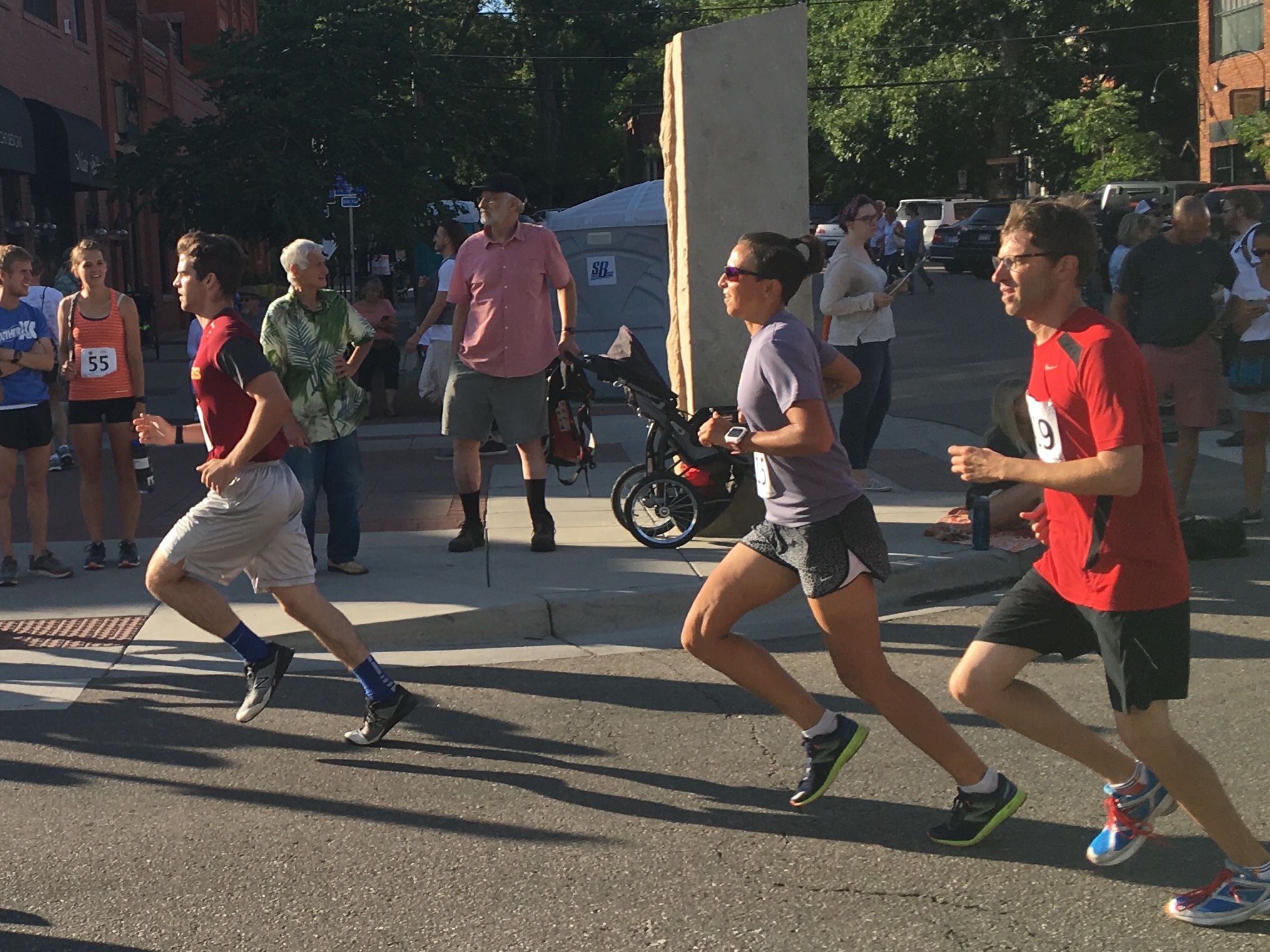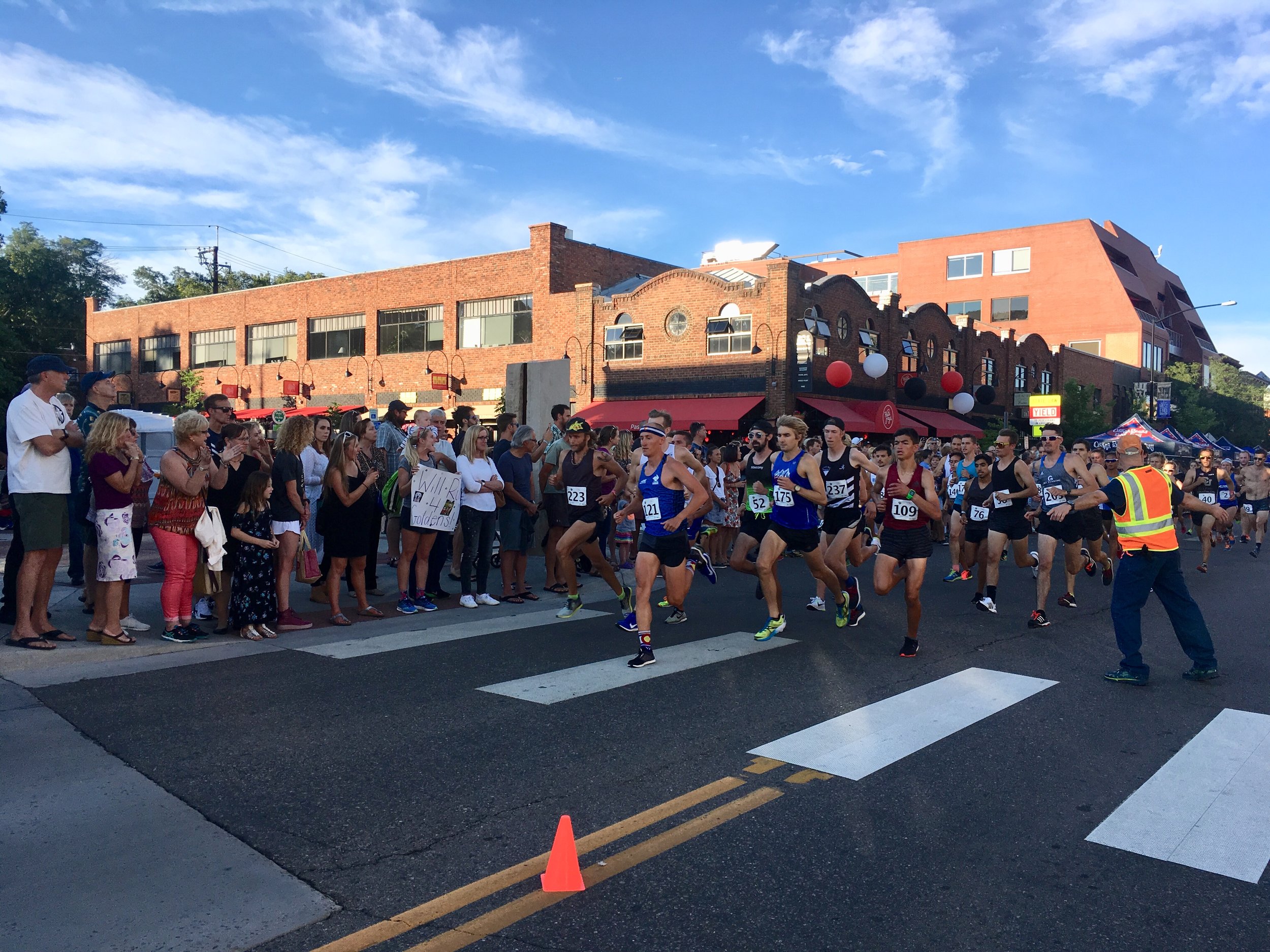Two years ago I gave up alcohol and rest days, and I've never felt better. Spoiler alert: the key was living at elevation in a place so beautiful it demands activity. Also, I discovered that speeding up recovery times and doing not only a variety of activities but a variety of combinations of activities equals less real rest.
I spent a lot of years (like, 12 years) running between 40 and 70 miles a week. (Sometimes more). Each day was essentially the same. Out the door within 10 minutes of waking for as many miles as I felt like going. I usually took a rest day every 10-14 days, usually after a longer or tougher run. Sometimes I pushed it to 3 weeks. Don't get me wrong, I loved it. Sometimes I planned what I'd do the night before, and sometimes I'd just see where my feet took me: hills, long slow distance, to the track, the park, etc. But I also started getting chronic stress fractures in my metatarsals. I am HORRIBLE at being injured. Anyone who knows me well, without hesitation, will confirm. I have a really, really hard time being still. I got so many stress fractures that I invested in my own "boot," and would throw it on for a few weeks whenever I felt the burning pain in my foot bones.
But eventually I was sick of sacrificing even 5 or 6 weeks a year to heal my feet. I decided to spend more time on my bike, in the pool, and generally doing things other than running to get my fix. When I moved from New York City to Colorado in June of 2016, I first moved to Leadville: a town that sits at 10,200 feet. For people coming from life at sea-level, even 5,000 feet of altitude takes some adjustment; but 2-miles high can be straight-up scary. It took most of 2 months before I could run 3 miles without stopping to catch my breath. For a while, just walking and talking was a real workout. Swimming was ridiculous: a rest after every 50 meters. Each morning for the first month, I woke feeling hung over, even if I hadn't been drinking. And when I was drinking, it usually wasn't more than a beer or two before I'd feel sick.
Going from NYC to Leadville was kind of like being injured, and I wanted to get better. I decided I'd give up alcohol entirely until I was used to the altitude. But after one month of a clear head and no alcohol, I dared myself to go a year. Honestly, after a year of no drinking, it wasn't even something I thought about. I'm pretty good at discipline: almost to a fault. If I give something up, it's just gone: not an option. I also noticed that I woke each day ready for adventure. I was discovering so many things to do that I had a constantly growing list. Two years later, my list is still very long. Just this weekend I started looking into kayaking lessons, and I totally want to surf the Buena Vista river park.
I also made my vow because something really bad happened to a friend of mine involving alcohol. So there was a secondary drive of solidarity in the decision. Around that time I remember hearing someone on the radio say something like, "If you can't get through a day, week, month, year without alcohol because you think it makes things more fun, then you might just be a really boring, uncreative person." I remember being offended at the time, and then a little scared that they were right. Now, I totally agree.
Obviously I'm not against rest: I usually rotate which disciplines I'm going hard in from week to week. For my first year of triathlon, I worked with a coach to learn how to pair activities together. A hard run in the morning and an easy swim in the afternoon. A long bike ride the next day and a short swim in the evening. Occasionally a trail run in the early morning and a short/hard hill ride in the afternoon. And then skiing, rock climbing, rowing, and SUP-ing every once in a while for a different kind of core strength. With so many days of double-duty, the body learns to recover quickly. I found that several two-a-days followed by a day or two with only one activity, feels like vacation. And if I've gone really hard for a while, or am just feeling drained, a hike with the pup or an easy swim feels better than doing nothing. So, rest is good, but variety and active recovery has been the name of the game for me. Basically, I just never want to miss a day outside.
I'm also not totally anti-alcohol. I fully support kicking your feet up with a cold beer or cocktail if that's your thing. Des Linden and Linsey Corbin are absolute heroes of mine, and both are known for their ability to recover with a libation. But for me, relaxing has come to include things that make me feel recovered instead of in need of recovery. Relaxing these days means hammock time, garden time, and falling asleep on the couch to a movie.

























